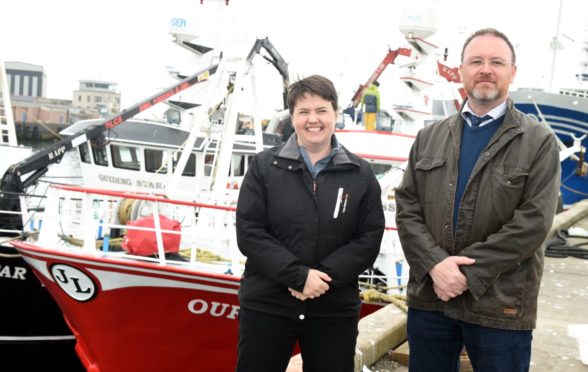Make no mistake, the deal we have secured with the EU puts the tiller of the fishing industry in our own hands. It means that, come January 1, we will finally take our place as an independent coastal state, with full control of our waters, for the first time since 1973.
Free from the clutches of the Common Fisheries Policy (CFP), the entire Scottish fisheries industry, including catching, processing and our coastal communities, can better reap the rewards of the bounty in the UK’s Exclusive Economic Zone (EEZ).
Such is the significance of fishing to the UK Government, that our negotiators stood up to the EU. During the final week of negotiations, they finally accepted that the UK could not be bound to the EU forever, and became willing to discuss our generous offer to allow the EU industry a period of calm and stability to adjust to the new arrangements.
Great progress
The EU suggested a transition period of around 14 years. We pushed back hard on this, originally offering three years and compromising further only as far as a five-and-a-half year adjustment – not as soon as we wanted, but still great progress.
To be clear, this settlement takes back control of our fishing waters, despite the fact that throughout the negotiations, the EU’s position failed to reflect that – once outside their orbit – the UK will be an independent coastal state no longer in thrall to the CFP.
The adjustment period will allow industries on both sides to adapt to the ‘new normal’. There will be a transfer of quota from the EU to us, representing 25% of the EU’s historic catch in UK waters within five-and-a-half years and with a 15% transfer – worth around £95 million – in the first year.
And from January 1 we can also look forward to exclusive access to Scottish waters to the historic 12 mile limit.
The iniquitous ‘relative stability’ mechanism, enshrined in the CFP, comes to an end and we will increase the share of the total catch taken in UK waters by UK vessels to about two-thirds after five-and-a-half years, compared to less than half today.
From day one we will have more control over our waters, bringing forward our own fisheries management measures more appropriate to our waters and our fishing. And at the end of the adjustment period, we will have complete control, with the UK’s sole right to determine access secured. Onwards access will be subject to annual negotiations – as is typical for independent coastal states.
We have secured an uplift in quota for Scotland on priority stocks including mackerel, blue whiting, anglerfish, megrims and saithe. North Sea herring will also increase.
In the meantime, we will continue to work with industry stakeholders and scientists to ensure that prudent conservation of our stocks remains at the heart of our thinking. Fishing has centuries of success behind it and, with sensible management, also has a bright future stretching into the centuries ahead.
Major investment
The UK Government remains committed to investing in our fishing communities and to do everything we can to help fettle the industry – onshore and off – to ensure it can take maximum advantage of the opportunities presented to us free from the CFP. The £100 million already earmarked means that, as the adjustment period draws to a close, there will be a revitalised UK fishing fleet well-placed to exploit new opportunities.
We will be setting out our spending plans – drawn up in close consultation with the industry – in more detail in the coming days.
The recently-passed Fisheries Act 2020, also allows us for the first time to set our own fisheries management rules. These rules – unlike under the CFP – must be followed by all vessels in our EEZ, wherever they come from.
The processing sector will benefit from continued tariff-free trade in many non-quota sectors – such as shellfish – which are exported to the EU in high volumes. This also provides certainty and security to those working in the UK’s pivotal processing sector.
I look forward to continuing to work with the industry to identify and deliver opportunities for support. Already we are taking part in bilateral negotiations with other neighbouring coastal states – such as Norway, Iceland and the Faroes – something we simply could not do other than as a bystander inside the EU.
We are confident that having secured this deal and operating as an independent coastal state, the UK Government can – working with industry stakeholders – help return a great British industry to the eminence it deserves.
David Duguid is MP for Banff and Buchan and a junior Scotland Office minister
